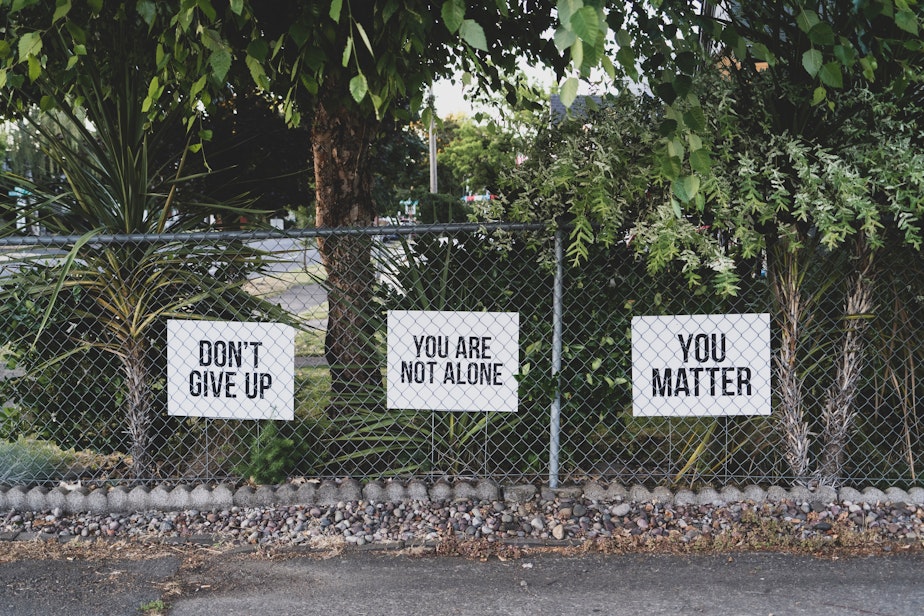Acute mental health resource guide – starting points

The mental health care system in Washington state can be convoluted and confusing. KUOW and The Seattle Times looked into the problem in the six-part podcast "Lost Patients." Getting help for mental health issues, and for mental illness like psychosis is not always straightforward, so we compiled a starting list of resources for anyone looking to care for themselves or their loved ones.
General
First Aid Guide for Loved Ones
211 WA — Dial this number for mental health evaluation, immediate information and resources.
Mental Health Evaluation Search — An aggregated resource to identify where to get evaluated for mental health treatment near you.
King County resources for voluntary and involuntary psychiatric hospitalization.
Sponsored
For Immediate Crisis
24 Hour Crisis Line: 1-866-427-4747 — Designated Crisis Responders (DCRs) will determine what is needed, including assessing for involuntary commitment.
WA Warm Line: 877 500 WARM — This line is operated by adult peer volunteers who have lived experience and is totally confidential.
988 — For King County is accessible with text, chat, and language assistance (note this will soon be integrated with 911 and 211).
National Alliance on Mental Illness Helpline — Call 1-800-950-NAMI, text “HelpLine” to 62640, or email us at helpline@nami.org.
Sponsored
Harborview Medical Center — For immediate and intensive inpatient psychiatric care.
Long-Term Support
WA Recovery Helpline — 866-789-1511
Program for Assertive Community Pact (PACT) — Cross-specialty care for people who are recovering from mental illness and re-entering their communities. Requires referral.
Psychosis REACH — A training resource for families and caregivers of people with psychosis. Trainings incorporate cognitive behavioral therapy strategies for psychosis.
Sponsored
NAMI Washington Affiliates — Statewide map and programs.
Washington Support Groups — Find a support group for you or your loved one's needs.
Check your eligibility to be a client of Developmental Disabilities Administration at WA DSHS for caregiver and residential living programs.
WA Mental Health Referral Service for Children and Teens — A free service.
The Bridge Program (WA Recovery Helpline, Crisis Connections and ScalaNW) — Medically supported treatment after regular clinic hours especially for those who have had opioid use disorder. Enrolling now. Email info@scalanw.org or ScalaNWBridging@crisisconnections.org to learn more.
Recovery Cafe - Recovery Cafe provides a number of programs to support individuals on their journey through recovery. Programs include support groups, meal assistance, resource referrals, and enrichment classes that help individuals build habits and choices to thrive.




